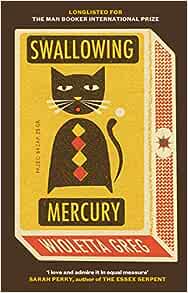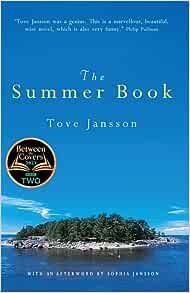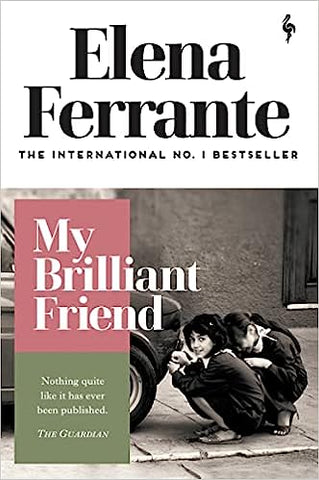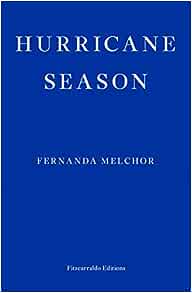
It’s August, which means The Willoughby Book Club is celebrating Women in Translation Month. The team is passionate about reading books from all over the world and promoting work written by women.
Now more than ever, we believe we need to read diversely, from across a spectrum of experiences, to expand our interests and to read with open-minded curiosity.
Summer is here for a few more weeks and the mornings and afternoons are still long, making it the perfect period to read plenty of exciting books and to spotlight writers overlooked by the wider publishing world, as well as some classic favourites that have stood the test of time.
The act of reading translated fiction or non-fiction is a really interesting, enriching experience, which not only signifies the quality of the writer’s work, but also the work of the translator themselves. A translator has to be completely fluent in two (or more!) language and they require a deep understanding of linguistic and cultural nuances and idiosyncrasies. Something that may sound natural in one language, might sound completely nonsensical in another. The literary or emotional impact of the language can also change, so the translator has an ambitious job of changing, altering or contextualising certain things.
Translation is, in a sense, an act of re-writing. Languages do not translate precisely. It’s not a science, but rather something more alchemical, requiring the patience, flare, and shades of the translator’s own experiences to bring something wholly new to the second text. The translator’s voice is ever-present and impossible to detach from that of the writer.
Considering these factors then, the act of translating women’s voices accurately and to do the original writing justice, is an integral part of the publishing process.
According to womenintranslation.org, only 36% of books translated into English are from non-European countries and less than 31% of translations are of books written by women. Considering the sheer quantities of titles that are released into the market each year, it seems quite unreasonable for these numbers to be so skewed in the favour of English language titles, written predominantly by men.
The Publishers Association report that in 2022, 669 million print books were sold in total. Print and digital book sales are increasing each year, making it more important than ever that the wonderful breadth of literature is made available to readers who crave stories of all kinds, from all four corners of the globe.
We've compiled some new translations, some that we've been enjoying, others that we're looking forward to getting to soon, so make sure to let us know of any we may have missed!
Butter by Asako Yuzuki (translated by Polly Barton)
The runaway cult bestseller of 2024, Butter is based on a real criminal case in Japan. The story of a cook who is in prison for the murder of several of her lonely businessmen lovers and the journalist investigating her case, this is a twisty, fascinating read full of insights into Japanese life and culture.
The descriptions of food in this novel are particularly evocative and immersive, it's almost too rich a book to read too much in one sitting. Food and eating underpin the story, as well as a simmering rage at misogyny, and an increasing awareness of the epidemic of loneliness, and the role of women in Japanese society.
This is an interesting read, but rather heavy on descriptions of melting butter!
- Marianne
I Who Have Never Known Men by Justine Harpman (translated by Roz Schwartz)
I'm reluctant to tell you very much about this strange post-apocalyptic novel, because I don't want to put you off, and it is very dark.
In an unspecified location and time, after an uncertain cataclysmic event, thirty nine women are kept locked in a cage underground. Each meal is delivered in a cart, their waking and sleeping times are dictated by fearsome, silent guards. The fortieth of their number, a young girl who was the youngest amongst them at the time of their capture watches and waits.
As she was so young at the time of the catastrophe she lacks the understanding of what the other women have lost, so we see and understand this strange world through her eyes, and it is through her vigilance that the women are able to survive and forge a life.
This is a bleak read, but also very beautiful. Questions are left unanswered throughout, but this just has the effect of further immersing you in the world of the narrator.
Give this a try, it will haunt you long after you finish reading.
'I was forced to acknowledge too late, much too late, that I too had loved, that I was capable of suffering and that I was human after all.'
- Marianne
The Book of Disappearance by Ibtisam Azem (translated by Sinan Antoon)
And Other Stories have published this intriguing 2014 novel by Palestinian author and journalist, Ibtisam Azem, which is fantastically translated from the Arabic by Sinan Antoon. It's a piece of magical realism, thrust into the political turmoil of zionism in the Middle East. The book's protagonist, Alaa, is haunted by his grandmother's memories of the Nakba. His friend, Ariel, is an Israeli with conflicting feelings about the treatment of Palestinians in the West Bank, while also being a self-proclaimed zionist.
When all Palestinians disappear from their homeland, Azen explores the aftermath of the event, the reactions of those left behind and Ariel's investigation into the mystery of their disappearance. A haunting, moving and unique novel, Azem's injection of a speculative element really elevates the power of the narrative.
- Olivia
Asa: The Girl Who Turned Into a Pair of Chopsticks by Natsuka Imamura (translated by Lucy North)

This is an original and surreal set of short stories, translated from the Japanese by Lucy North. These are stories of slice-of-life alienation, gender dynamics and metamorphosis. Each are linked but are very different in tone and ideas, but are rather dark, so consider this a warning. The titular story in particular is super interesting, with the human protagonist turning into a tree and then into chopsticks. It feels like a fable, directly told and an interesting interpretation of animism (the belief that everything on earth is imbued with a spirit!). It's a book for weirdos and aspiring weirdos, so if that mini elevator pitch does it for you, pick up a copy.
- Olivia
Dallergut Dream Department Store by Mi-Ye Lee (Translated by Sandy Joosun Lee)
In a mysterious town there is a shop that sells all kinds of dreams to all kinds of people and animals.
Shuffling in in their pj’s, visitors line up to purchase their new dream adventure, with each floor selling different dreams from childhood nostalgia, past trips, memories of past meals and even more mysteriously, nightmares. In this place, we follow Penny, a new recruit of the store, as she tries to uncover the workings behind the whimsical dreamlike world.
I’m currently reading this and it’s the perfect antidote to the much more serious book I read previously!
- Alisha
Swallowing Mercury by Wioletta Greg (translated by Eliza Marciniak)
1980’s Poland and political change is humming in the background. Yet, Swallowing Mercury is a coming-of-age story about a girl growing up in a close-knit agricultural community. With rumoured visits from the pope and the mysterious locked room in the dressmaker's house, Greg perfectly captures the strangeness and comedy of growing up.
I really loved this book. It's short but it leaves a lasting and slightly haunting impression! I don’t know very much about Poland during this time and to read this fictionalised version of Wioletta Greg’s childhood years makes me want to find out everything about this period. A coming-of-age story with a slightly uneasy edge to it.
- Alisha
The Summer Book by Tove Jansson (translated by Thomas Teal)
Six year old Sophie and her grandmother spend the summer together on an island in the gulf of Finland, whiling away the days, talking, exploring and and enjoying being together. The love between them remains unspoken, as does the loss of Sophia's mother.
This is a short novel, but all the more beautiful for it's spareness and brevity. It touches on all the most important elements of life, highlighted by Sophia's youth and her grandmother's age.
Treat yourself to a copy of this, you'll be sure to turn to it over and over again, as I have done.
- Marianne
Elena Ferrante (translated by Ann Goldstein)
I fell in love with Elena Ferrante when I first travelled to Naples. Her writing is suffused with Ferrante’s love for her home city and the for the people who populate it. Her Neapolitan quartet, along with her individual novels always stand out to me. The way she constructs her stories and their characters is clever and generous. Naples is very much a character itself, chaotic, almost mythic in nature, but possessing an energy that refuses to let the characters leave for very long. She is a firm favourite of many and when you read any of her novels, it is clear to see why. I recommend starting with My Brilliant Friend, but The Lost Daughter or Troubling Love would be great jump-off points, too.
- Olivia
All Men Want to Know by Nina Bouraoui (translated by Aneesa Abbas Higgins)
This short, illuminating book is a really interesting piece of autofiction, whereby Bouraoui inserts herself and the story of her family into the narrative. Each chapter drifts between past (her childhood in Algeria, sometimes the childhood of her mother in France) and present (1980s Paris), as she weighs up the various components of her identity as a half- Algerian, half-French lesbian, who can't quite find her footing in the world.
At times quite shocking, at others quiet and contemplative, Bouraoui's understated style is brilliantly captured through Higgins' translation. She un-otherises Algeria, exploring both its beauty and its darkness in the shadow of French colonialism. Paris, her home only after dark, particularly in the gay haunt Katmandu, or the 'Kat', allows her to discover parts of herself, but ignore others. Will she find happiness in spite of the contradictions?
This is a must-read for fans of post-colonial literature and autofiction!
- Olivia
Hurricane Season and Paradais by Fernanda Melchor (translated by Sophie Hughes)
Melchor is an author who will never hold back. Her books reveal the dark underbelly of sections of Mexican society, meaning her prose can be unrelentless at time, but she has a way of keeping your attention firmly on the page. Her characters are psychologically complex, and like Ferrante’s, a product of their environment. Similar to the best writers, Melchor truly gets under the reader’s skin and refuses to leave. Her two novels, Hurricane Season and Paradais, are very different stories with some common themes explored, including class, poverty, violence, and toxic masculinity. If those four topics haven’t put you off, then definitely pick up a copy. Her latest collection to be published in the UK by Fitzcarraldo, is titled This is Not Miami, and is the author’s first piece of non-fiction translated into English.
- Olivia
Before the Queen Falls Asleep by Huzama Habayeb (translated by Kay Heikkinen)
This 2024 paperback release, originally written in Arabic by a woman and also translated by a woman, is the perfect example of the amazing quality of women's translation in the publishing industry. This is Kay Heikkinen's second Huzama Habayeb translation, the first being the novel, Velvet, back in 2019.
This is a beautifully written tale of a young Palestinian woman, Maleka, who is about to move away from Dubai to study at a university abroad. In the time before she leaves, her mother, Jihad, tells her stories of her own life each night. They are stories of growing up being treated like the son her parents actually wanted, as well as her experiences as a Palestinian refugee in both Kuwait and Jordan after the Gulf War. A series of non-linear and meandering stories that are full of emotion and heart, Before the Queen Falls Asleep is a profound insight into the Palestinian diaspora and the spirit of resilience borne from it. In many ways, the novel mirrors that of the author's own life.
With all that’s going on in the world at the moment, I feel like this is an important book to be read, for us as individuals to understand the very human effects of global actions.
- Aishah
A Magical Girl Retires by Park Seolyeon (translated by Anton Hur)
On a slightly less serious note, we recommend the book A Magical Girl Retires, a somewhat satirical take on a long established 'Magical Girl' trope that often appears in manga and anime (think Sailor Moon). While whimsical and funny it also deals with the darker aspects of these stories that are often ignored. The big evil she is trying to defeat is climate change and to fight it she has to use her… magical credit card. It explores mental health, financial issues, and patriarchy, while maintaining a fun and light-hearted reading experience.
As someone who has read quite a few 'Magical Girl' manga and manhwa, I found this book to be both a fantastic homage to the stories that have come before it and also a subversion of the genre, biting back at the misogynistic undertones of some previous stories. You don’t need to have any prior knowledge of “Magical Girl” stories to enjoy this book, though if you are familiar with it, you will probably enjoy this book that much more!
- Aishah











